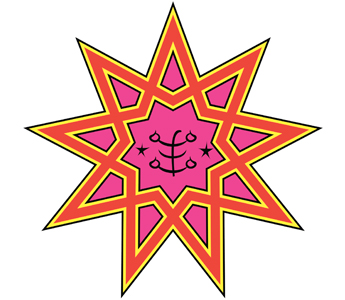The Bahá’í Faith is the youngest of the world’s independent religions and emerged from Iran in the mid-1800s. Its teachings include the oneness of humanity, independent investigation of truth and the equality of men and women. It is known for its belief in the essential unity of all religions.
Bahá'ís follow Bahá'u'lláh, whom they believe to be the Promised One of All Ages.
Bahá'u'lláh, whose name translates as “the Glory of God”, taught that throughout history, God has revealed Himself to humanity through a series of divine Messengers, whose teachings guide and educate us. These Messengers include Abraham, Krishna, Zoroaster, Moses, Buddha, Jesus, and Muhammad. Their religions come from the same Source and each one builds on the previous one, enabling mankind to progress and advance. Bahá'u'lláh claimed that he was the Messenger of God for today and brought new spiritual and social teachings for our time. His essential message was of unity. He taught the oneness of God, the oneness of the human family, and the oneness of religion. In his writings he laid out a vision for the future of humanity and a pattern for a global civilisation.
Bahá'u'lláh was persecuted because of his claims and, after a long series of exiles and imprisonments, was finally exiled to the Holy Land, where He passed away in 1892. His Shrine, near Akka, is a centre of pilgrimage for Bahá’ís throughout the world.
Today, the Bahá'í Faith has spread around the globe. Members of the Bahá'í Faith live in more than 100,000 localities and come from nearly every nation, ethnic group, culture, profession, and social or economic background.
 The Baha’i Faith
The Baha’i Faith






















